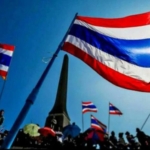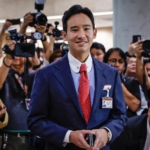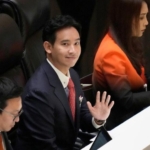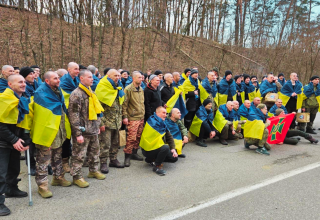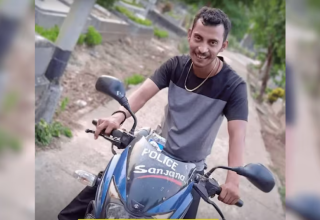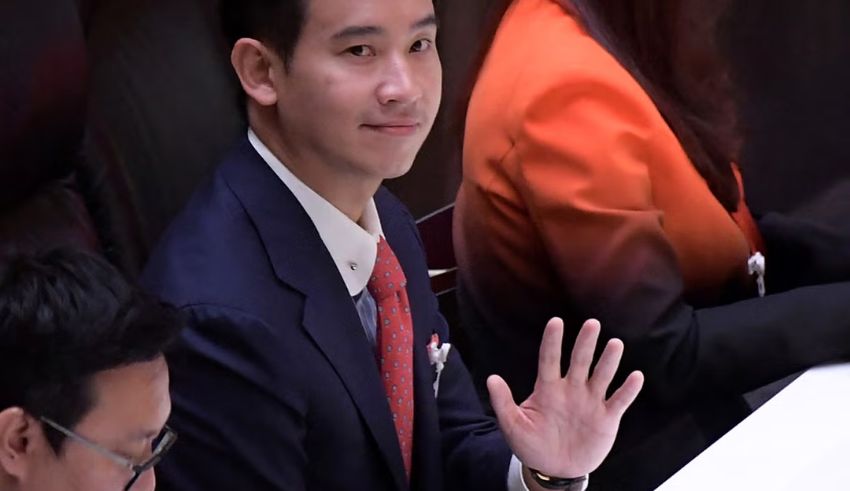
Media analysts have raised exciting questions following Pita Limjaroenrat and his Move Forward Party’s surprising victory over Thaksin Shinawatra’s Pheu Thai Party in recent elections. It has been questioned whether Move Forward’s election-related ideas, such as their suggestion to amend Article 112, were only a gimmick to win support or if they wanted to carry out their agenda.
Pita and his party unexpectedly won the election two months ago with about 14.5 million votes. Even though pollsters had Pheu Thai as the winner, Move Forward actually won. Pita gave the impression that he was confident in obtaining the legislative majority needed to become prime minister. However, his first attempt to lead his eight-party coalition was unsuccessful due to a lack of support from the Senate and the Lower House.
Amendment of Article 112 and Rightists’ Discontent
The proposed modification of Article 112, widely known as the lese majeste statute, was one of Move Forward’s divisive ideas. This idea was made to shorten prison sentences and restrict police complaint filing to the Royal Household Bureau. However, right-wing activists and royal supporters objected to the approach since it involved royalty in court matters. While many senators and MPs were ready to support Pita, they insisted that the amendment suggestion be dropped.
Pita was denied becoming prime minister by more than 50 votes after Move Forward insisted on their position about the amendment. Some senators who disobeyed their colleagues and supported Pita were expelled from Senate committee Line groups and shunned as a result. There were allegations that these senators voted to safeguard their own interests out of concern for the safety of their families. Pita must now make a significant choice regarding his future in politics.
Pita declared a parliamentary effort to modify the Constitution to prevent senators from taking part in selecting the prime minister in response to his inability to win the prime minister’s job. But this project is expected to be difficult and time-consuming, maybe taking several months or even a year. According to several MPs, Pita should concentrate on winning a majority vote in Parliament rather than getting involved in issues unrelated to his political destiny.
The Alleged Bait of 300 Campaign Policies
When it comes to whether Move Forward’s 300 campaign promises were merely “bait” to win votes and then forward their true agenda—amending Article 112—media analysts have raised fascinating questions. This rumour adds to the intricacy of Pita’s current situation and emphasises the scepticism around Move Forward’s motives.
Keep Reading
The Role of the Young Activist “Yok”
After the general election, a push to eliminate compulsory school uniforms became a hot topic. Teenage activist “Yok,” a member of the opposition movement Talu Wang (“Shattering the Palace”), calls for the freedom to dress casually when attending Triam Udom Suksa Pattanakarn School. Pita and Move Forward have faced more difficulties due to Yok and her peers’ boldness and stubbornness, which could ultimately lead to their demise.
With time dwindling, Pita’s political future is in jeopardy. Currently, his party is being accused of several things that could result in its breakup. If proven guilty, Pita and his party’s executive members risk being permanently banned from politics. At the same time, there is a greater chance that Pheu Thai, the second-place finisher in the poll, will win back support and form a coalition government. Srettha Thavisin or Paetongtarn Shinawatra, both graduates of Chulalongkorn University, are probable rivals for the position of prime minister from Pheu Thai, although the decision has not yet been made.
Pita Limjaroenrat must decide whether to pursue the position of prime minister or concede to a rival contender at a crucial juncture in his political career. Pita’s predicament is made more difficult by the debate surrounding Move Forward’s campaign strategies, precisely the idea to change Article 112. Pita is under increasing strain as he must manage political obstacles, potential legal ramifications, and the growing influence of young activists, all of which could impact his and his party’s future.
